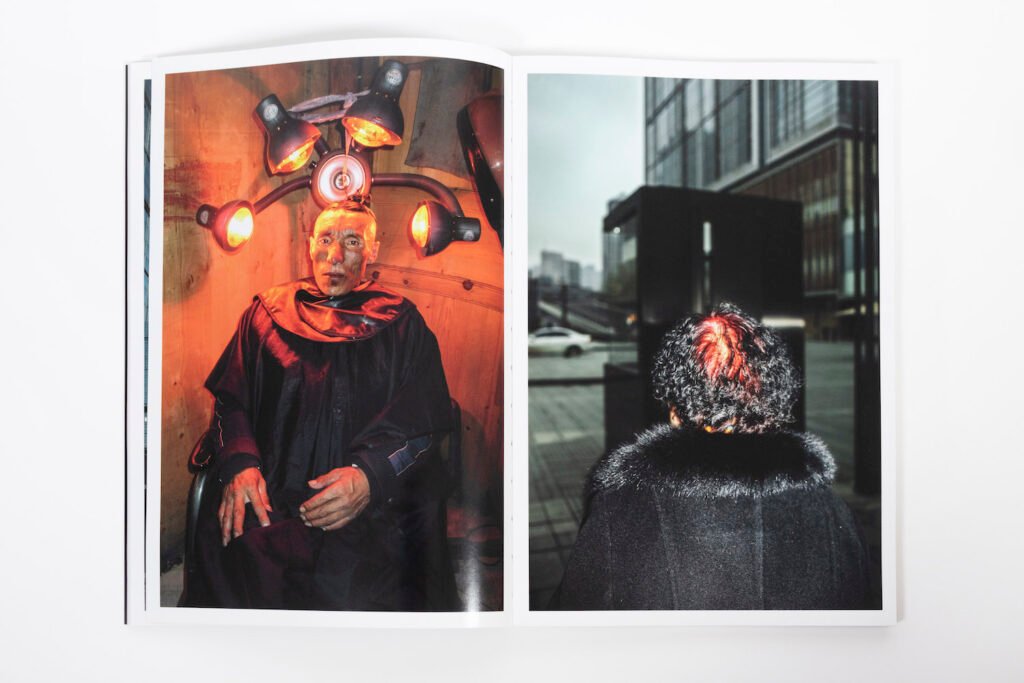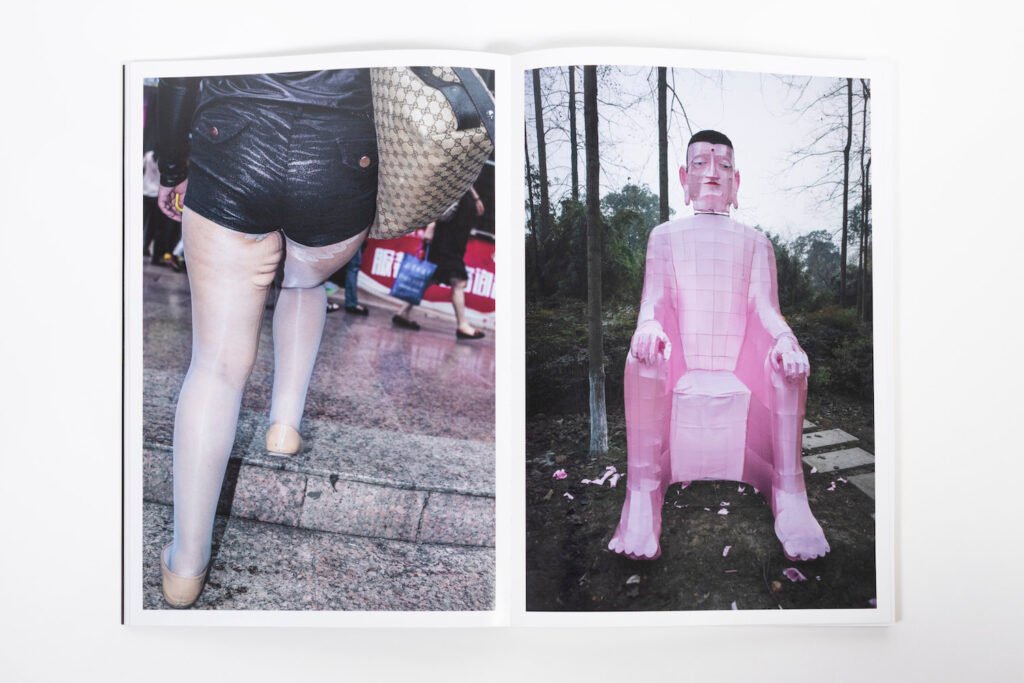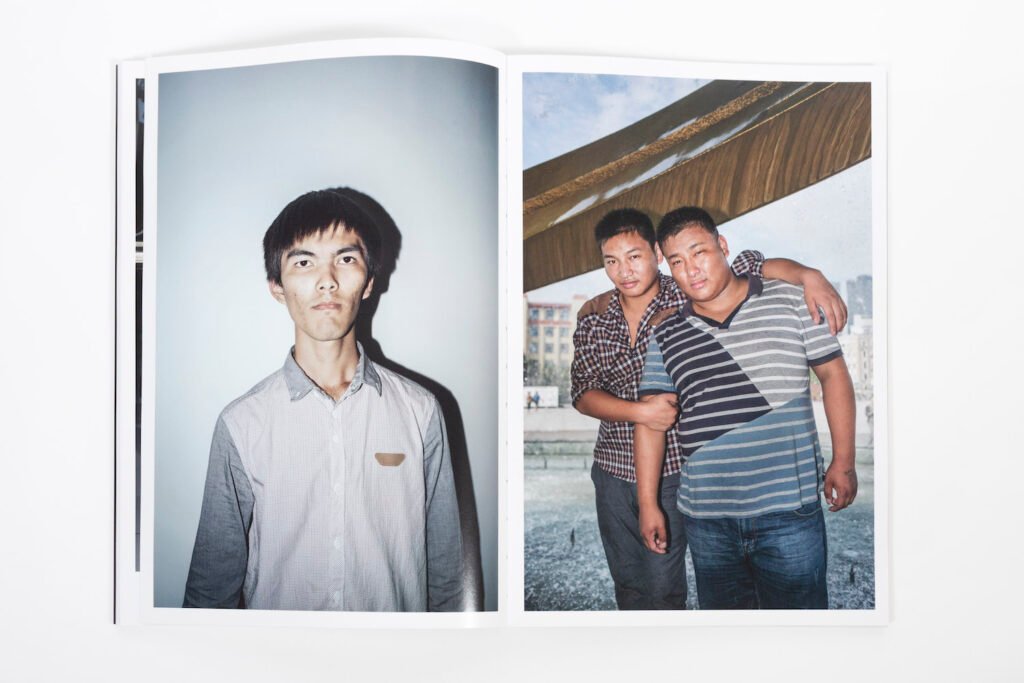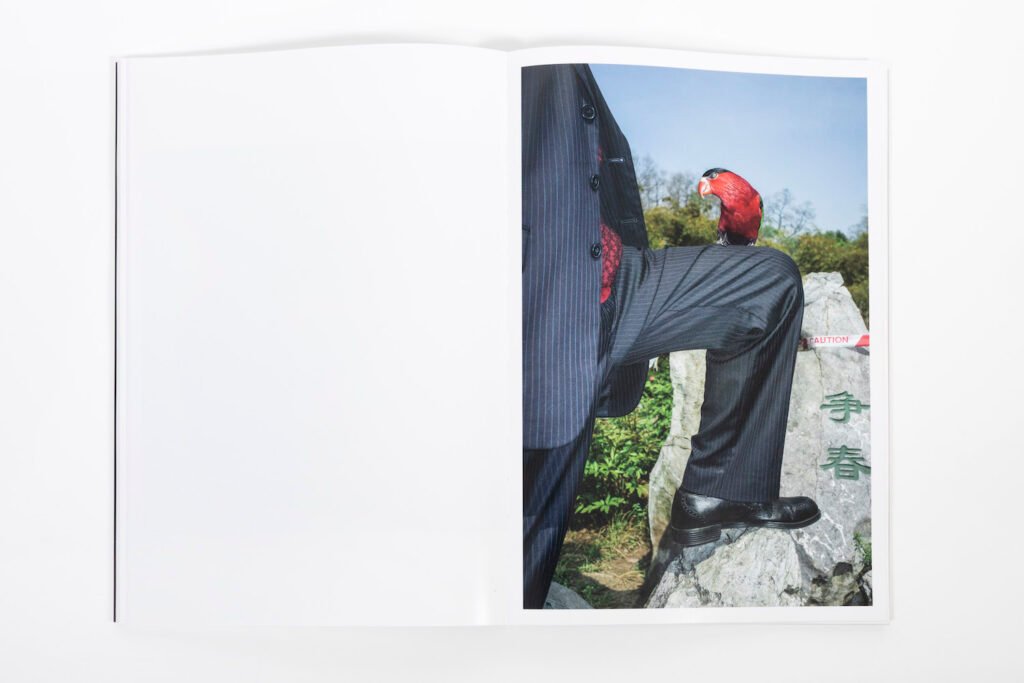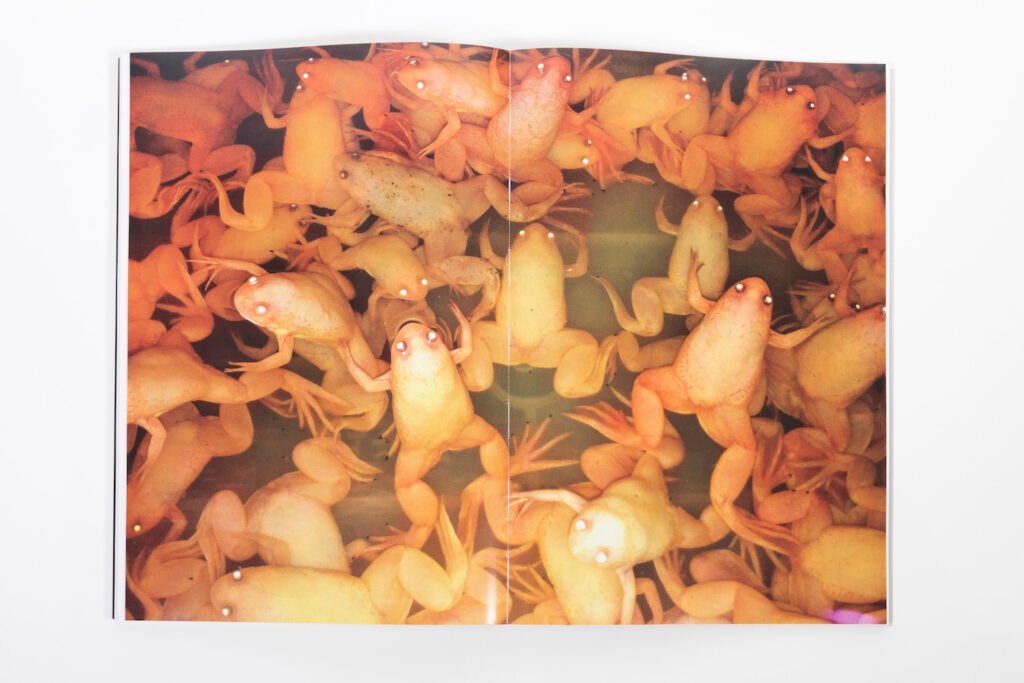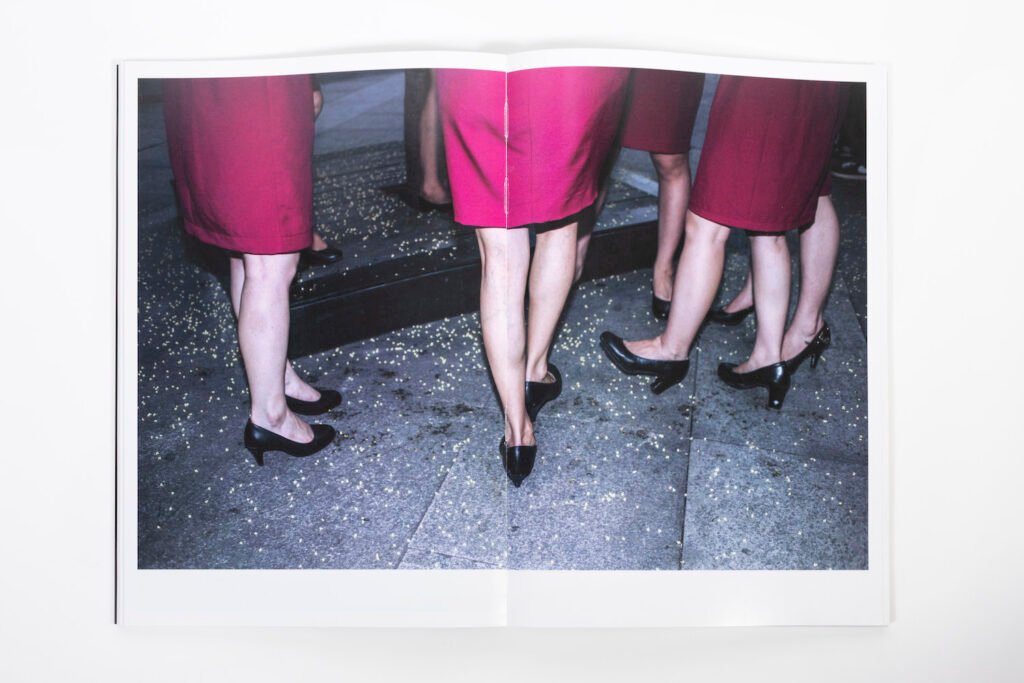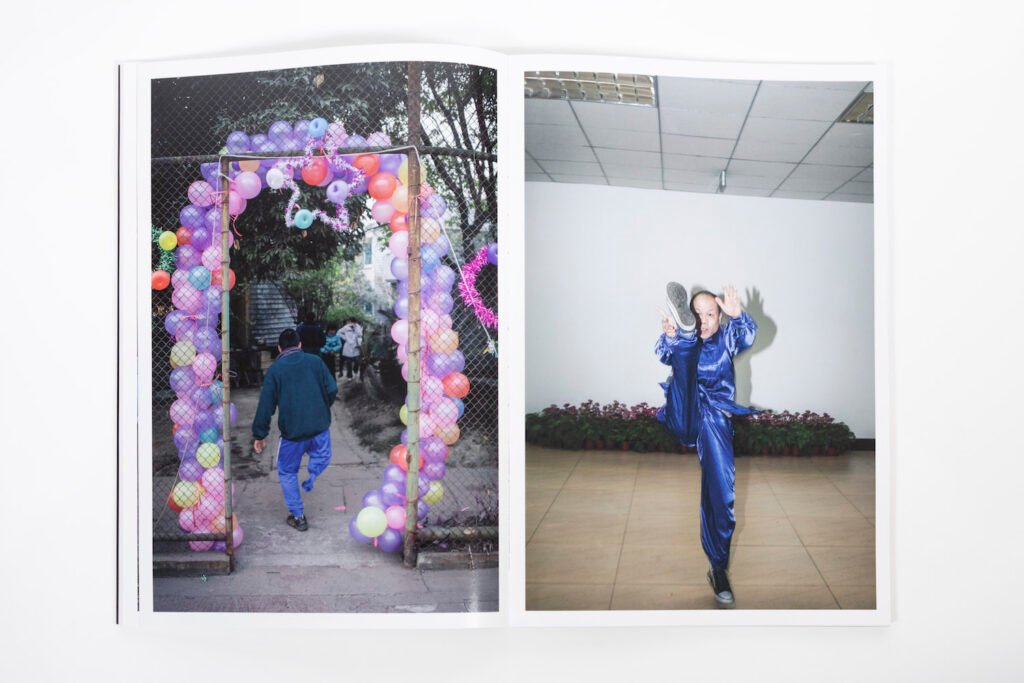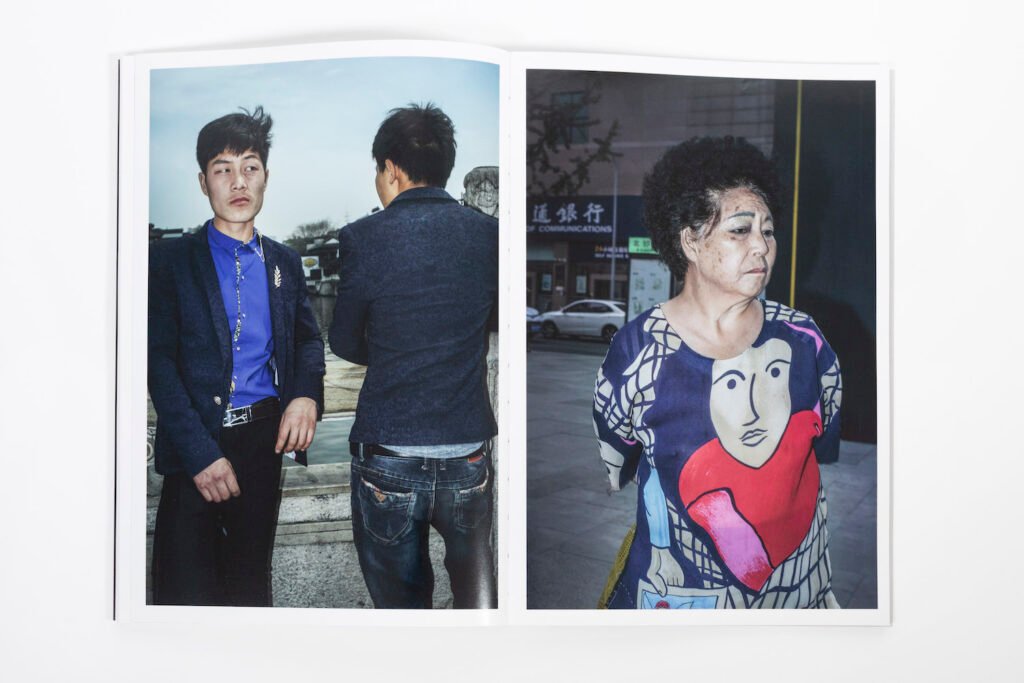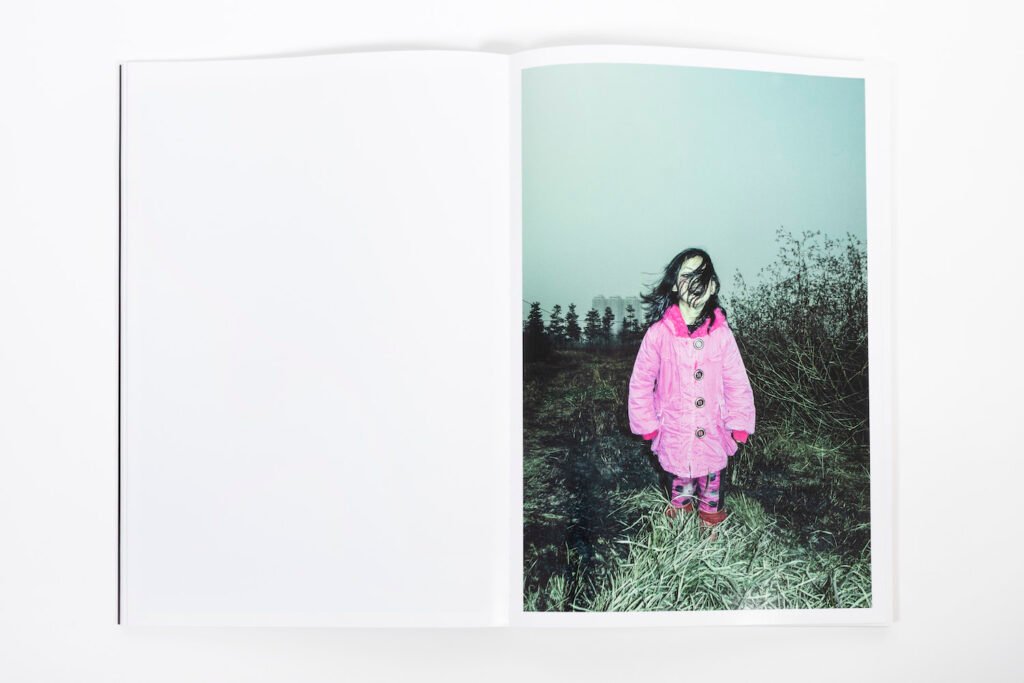Feng Li’s “White Night” is a fragmentary story that gathers a collection of photographies taken between 2005 and 2015. Like a flâneur in the streets of the Chinese city of Chengdu, Li wanders and wonders about reality, although generating other questions instead of answers. Indeed, his images are inspired by a sense of alienation coming from the absurdity of reality itself, which is constantly changing. Li started photographing in his mid-twenties when he first got a camera in 1996 while working in the Chinese civil service. His earliest shoots span from urban constructions to social and community activities, which have in common with his first monograph “White Night” the longing for human stories.
Li’s (re)construction of reality is defined by the witness of the flash, both an aesthetic pleasure and a meaningful actor. Indeed, as the author states his world is of “white night”, pointedly permeating with the Biblical verse “[b]y day they meet with darkness, and grope at noon as in the night.” (Job 5:14). With no religious acceptance intended to be embedded in it, the book simply narrates the lust of humans for darkness, resulting in a visual story that is both a human comedy in a Balzacian sense and a forensically unfolded drama. Nonetheless, through the eyes and the lens of Li, the world is constructed as real and surreal, an ambiguous lifeform that is certainly uncertain in its capability to generate questions rather than answers.
The milieu where Li’s human comedy unfolds is the urban jungle, its streets and corners. Every subject is portrayed as it was found, nothing is staged or looked for. Loneliness is dressed up of irony, while alienation of a diffuse sense of connectedness given by the spatial proximity of all the happenings in the city of Chengdu. Despite the clear localisation of “White Night”’s shots, no cultural context is needed to understand this hyper-realistic fragmented story of nobody and everybody at the same time. What is thus narrated is human nature, portrayed by the surgical eye of Li’s surreal vision. This is a tale of emotions, reactions, rituals and casualties. Everything is served straightforward without any edulcorating expedient to show and not show, although there is a lot hidden in the pictures, which stand as symbols of an alternate world for the simple fact of being photographies. The Spanish writer Alberto Ruiz de Samaniego (2015) has described the human condition as an incongruous night from which figures merge as transitory silhouettes that accidentally interlock. In Li’s book’s scenes everything invisible in the realist tradition such as human latent desires. Fetishes in the form of plastic, artificial statues or living animals are thus present to co-perform with people. Maybe the overall query is that of finding correspondences between the animal and the human, to go to the essence of what it means to be human, again with no teleological or spiritual reference if not the faith in the photographic medium and its potential to cut reality to the bone.
Feng Li (born in 1971 in Chengdu) started taking photographs as a civil servant for the provincial Department of Communication. As an independent artist he started working on his series ‘White Night’ in 2005, focussing on the bizarre and the mundane in everyday life in China. Feng Li won the 2017 Jimei x Arles Discovery Award.
Feng’s long-term ongoing series of street photography, White Night, has been published in a book and shown in solo exhibitions at Nanjing University of the Arts Museum in Nanjing, China, Galerie Oberkampf in Paris, and at Rencontres d’Arles in Arles, France. It has won him the Best Photographer Prize at Jinan International Photo Biennale, the Grand Jury Prize at Lianzhou Photo Festival, and the Discovery Award at the Jimei x Arles International Photography Festival, all in China.


